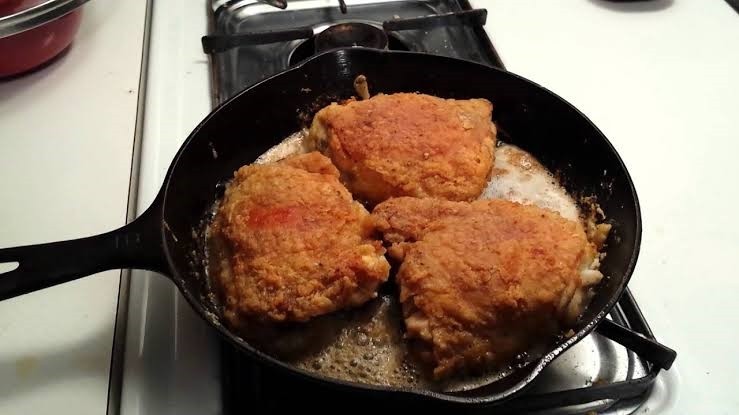Family heirlooms can mean and be different things to different people. For some, a family heirloom can be a priceless piece of artwork that has passed down from father to son, mother to daughter, grandparent to grandchild. It could be something like an elegant pearl necklace or a diamond ring worn by the women in the family. Or it is a delicate (yet full of stories and memories) piece of clothing such as a wedding dress or veil or cherished family Bible.
But for many a Southerner, the words “family heirloom” conjure up memories of something simpler yet far more precious-a humble cast iron skillet. Many are the young people of the South whose first experience with the art of cooking involved cornmeal, flour, water, and eggs, whisked together and baked in a hot oven or fried on a stove top to create that versatile Southern staple known as cornbread. Legions of cobblers, whole herds of pigs (in the form of bacon or ham), a mind boggling variety of other meat and vegetable products-oh, anything and everything could hit the family cast iron and come out tasting as if the angels themselves had made it. These simple household implements were often passed down from generation to generation, with strict instructions as to the care, cleaning, and storage thereof of said skillet. Many tales of meals past that originated in these hallowed objects were also added to the collective family memories along with the passing down of the skillets, making the reception much more precious in the process. So much meaning went into the passing down that a dear friend of mine still laments the loss of his own mother’s skillet which she turn had inherited from HER great grandmother. And to add even further to a cast iron skillet’s versatility, it could make a darn fine weapon if the need arose!
So how exactly did the humble cast iron skillet ascend to such an exalted place in our society? My theory is this-that the very durability of cast iron is symbolic of the durability of the human spirit in general and Southerners in particular. Families knew that no matter their personal circumstances, often Mama could work that Southern Mama magic with that cast iron and feed the neighborhood if necessary (biscuits and gravy anyone?) . Seeing that symbol in use by many generations, if you were so fortunate as to experience such an event, also let us know that something of our own selves will keep moving on through the years. It is a constant and consistent reminder of precious memories. And even in today’s extra technical powered world, when it seems as if the world is going way far South in a flammable egg crate, we can grab Grandma’s skillet and her recipe box and whip up some good times. And somehow we know everything will be alright.
Author Bio – Amanda Pugh is an adjunct professor of communications at Jackson State Community College in Jackson, Tenn. Her work has appeared in The Dead Mule School of Southern Literature, Tennessee’s Best Emerging Poets, Our Jackson Home, Down in the Dirt, Tuck Magazine, Spilled Ink, and several anthologies.





